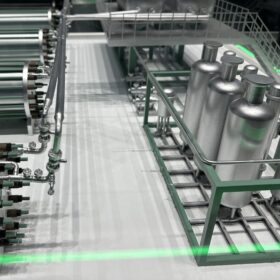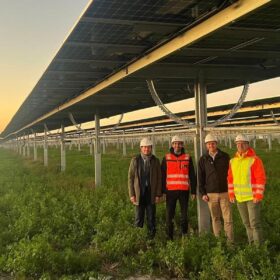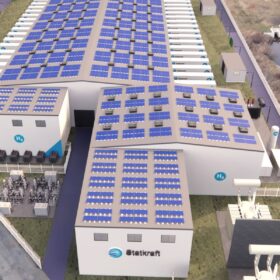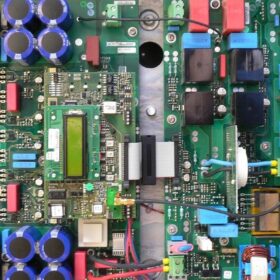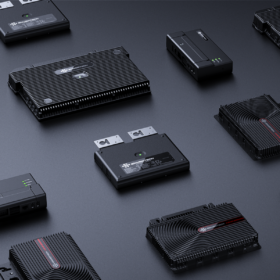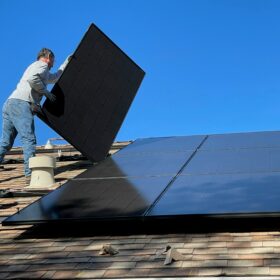Germany set to cross 100 GW milestone
Germany might exceed 100 GW of cumulative solar capacity in 2024, as new projections from Bundesverband der deutschen Energie- und Wasserwirtschaft (BDEW) estimate 17.5 GW in new PV installations.
Germany commits €24 billion to build national hydrogen network
KfW Development Bank has offered €24 billion ($25.2 billion) grant to bridge the gap between network operators’ high investment costs and the initially low revenues from network charges.
Germany’s national, federal highways could host 54 GW of PV
A new study by Germany’s Federal Highway Research Institute (BASt) points to strong potential for solar deployment across the nation’s roadways and highways.
Austrian utility building 164 MW agrivoltaic plant
Burgerland Energie says it is building a 164 MW tracker-based agrivoltaic facility near Tadten-Wallern on Lake Neusiedl, southeastern Austria.
Statkraft aiming for up to €107 million in EU funding for hydrogen production in Germany
The Norwegian energy company wants to build 200 MW of electrolysis capacity in the German state of Lower Saxony. The waste heat generated is to be used for district heating. The EU has now asked Statkraft to enter into negotiations on funding.
German PV experts develop quality standard for solar modules
The new Solar Module Quality Standard is based on VDE SPEC 90038-1. It will guarantee that PV modules have been produced and tested according to uniform quality criteria.
Fraunhofer IMWS develops methodology for better lifetime predictions of inverters
The Fraunhofer Institute for Microstructure of Materials and Systems (Fraunhofer IMWS) has developed a methodology to improve lifetime predictions of inverters, to help manufacturers reduce material use and testing efforts while lowering production costs without compromising device lifespan.
Germany wraps up ‘innovative’ tender with average price of €0.0709/kWh
Germany has concluded a new renewables tender, securing 583 MW of capacity at an average price of €0.0709 ($0.0771)/kWh.
Envertech launches microinverters for PV systems with up to 60 modules
Envertech says it has developed microinverters for PV systems supporting up to 60 modules, allowing up to four modules per unit with separate maximum power point tracking.
Otovo announces layoff plan
Norway’s Otovo says it plans to lay off around 170 employees. The company, which operates in 13 European countries, employed 384 people by the end of 2023.

